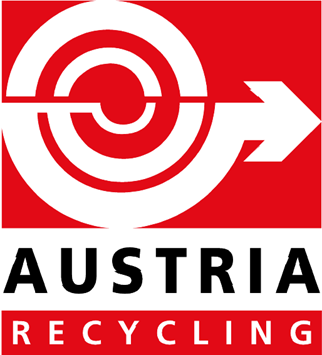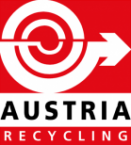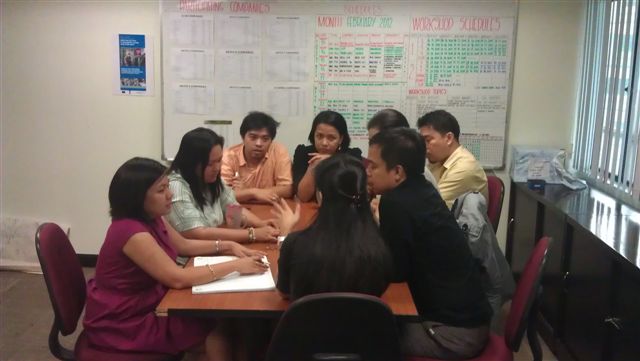
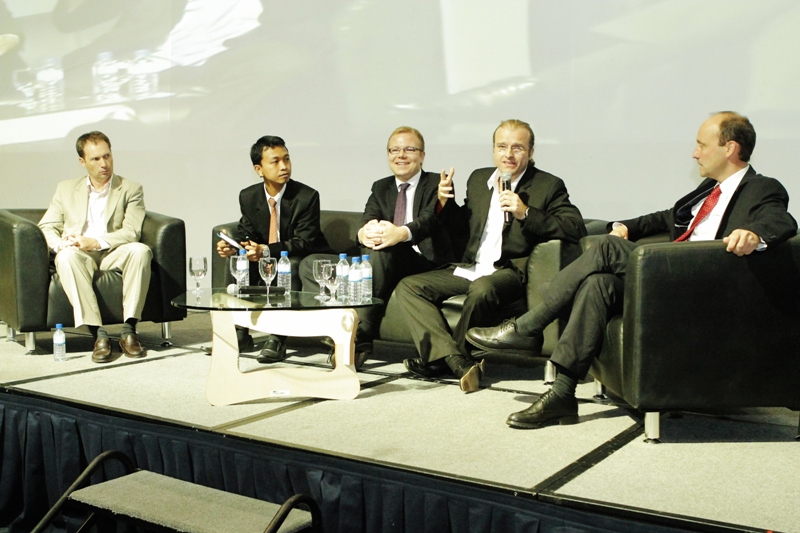
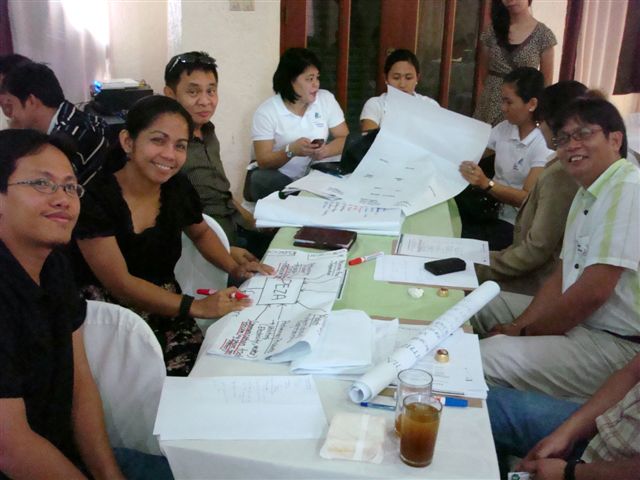
Lead Applicant: Vysoká škola báñská – Technical University Ostrava (VSB-TUO)
Projektpartner:
- Austria Recycling
- Gruppe zu Förderung der Angepassten Technologien
(GrAT – Austria) - Asia Society for Social Improvement and Sustainable
Transformation, Inc. (ASSIST – Philippines) - European Chamber of Commerce of the Philippines
(ECCP – Philippines) - Philippine Chamber of Commerce and Industry
(PCCI – Philippines) - Philippine Business for the Environment Inc.
(PBE – Philippines).
Primary beneficiaries: Around 400 companies in the Metro-Manila metropolitan area, Philippines
Funding: European Commission (Switch Asia Programme, co-funded by ADA)
The goal of GPIOS was to promote resource efficiency in around 400 companies in the Metro-Manila metropolitan area through the EcoSwitch approach. GPIOS includes various workshop series for companies and individual consulting in the participating companies, as well as the establishment of a local center for ‘EcoSwitch’ (train the trainer, network, office, sponsors…).
In this project, a regional approach was chosen in order to send a tangible signal in one of the most polluted regions of the world.
By the time the funded project was completed, a functioning market (supply and demand) for resource efficiency projects should have emerged, so one of the priorities was to prove that most measures pay off for the companies within a short period of time, i.e. that investments in resource-efficient technologies or measures deliver real savings very quickly.
Project duration: 2009 bis 2014
Quantitative Resulte: InDuring the 4 project years impressive results could be achieved. Altogether more than 500 companies took part, with approx. 300 companies concrete measures were implemented. Of these, 66 million kWh of electricity and 270 million kWh of fuel were saved in the course of the project and the volume of residual waste was reduced by 32,000 tonnes. These savings correspond to around 26 million euros or 102,142,531 kg expressed in CO2 savings. More than 70% of the savings were achieved with little or no investment. This also showed that RE measures pay off very quickly in most cases.
